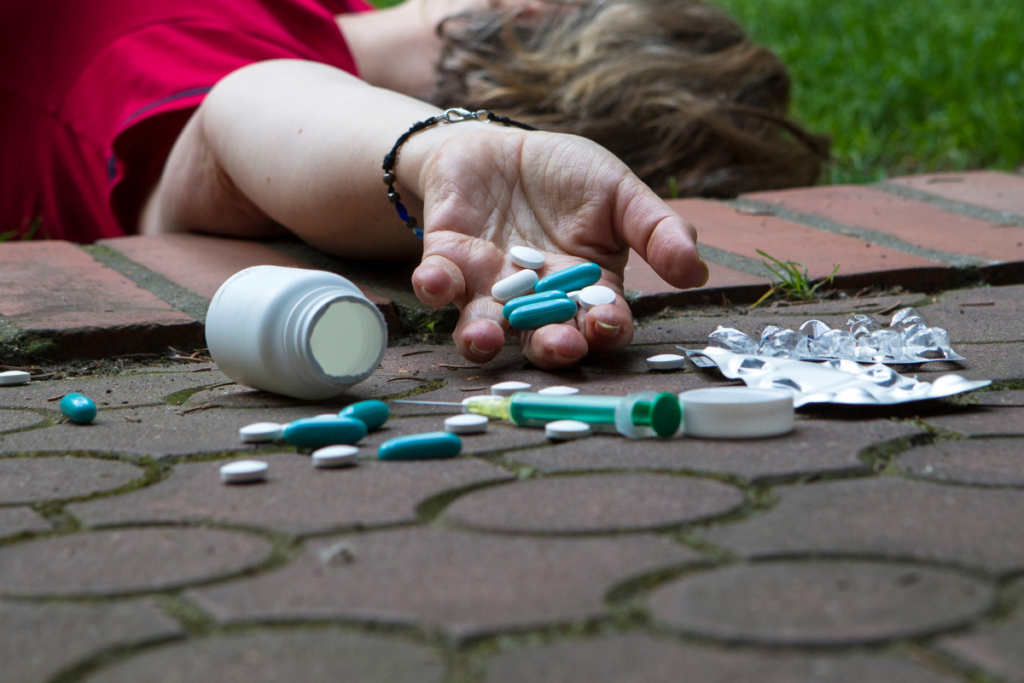When someone survives an overdose they gain the opportunity to make a new start. It is something to be thankful for, especially when compared to the 70,000 people who died from drug overdoses last year. Nevertheless, non-fatal drug overdoses often leave a person facing challenges and health consequences that can be severe.
Studies show that the majority of overdoses are opioid-related. But, a person can overdose on amphetamines, cocaine, alcohol, inhalants, stimulants, and more. These drugs cause thousands of fatal overdoses every year.
Saving lives is the priority when it comes to overdose prevention. However, the person is vulnerable after suffering an overdose. This vulnerability puts them at risk of relapse and another overdose. It’s important to make sure they receive treatment and support that will help them avoid continued substance use.
What Can a Person Expect After Surviving an Overdose?
At first, an overdose survivor may feel invincible and won’t realize the likelihood of side effects that may show up later. Depending on the substance involved and the severity of the addiction, the individual can suffer a range of physical and psychological health problems that can persist for a lifetime.
Sadly, some people survive more than one overdose. Although it’s a good thing they survived, it’s not good that they keep repeating the pattern. With each incident, their health diminishes a little more. Over time, the accumulating effects can become permanent. About 75 percent of overdose survivors have some sort of injury associated with the incident.
Some of the chronic health problems that can result from non-fatal overdoses may include the following:
Brain injury: Respiratory depression during an overdose deprives the brain of the oxygen it requires. As a result, physical and mental problems can appear, such as:
- Disorientation
- Partial paralysis
- Memory loss
- Inability control bodily functions
- Slower reaction times
- Acute amnesia
- Nerve damage
- Abnormal heart rhythm
- Poor coordination
- Depression, suicidal ideation.
When a person survives an overdose, they should be screened for brain injury. The screening will help determine the level of treatment they need for behavioral, cognitive, or physical issues.
- Damage to major organs. When a person is suffering an overdose, they often remain in one position for a long time. This lack of movement can restrict blood flow which is necessary for filtering toxins from the body. As a result, the kidney and liver can shut down, and the damage may be permanent. In some cases, long-term dialysis is necessary.
- Nerve damage. Remaining in one position for a long time during an overdose can also cause permanent nerve damage. For instance, if the person is awkwardly positioned with a bent arm or leg, blood can’t circulate in the limb. This may result in long-term pain, decreased mobility, paralysis, or amputation.
Warning Signs of Overdose You Need to Know
An overdose is the body’s way of saying it has had enough and cannot tolerate or process any more of the poisonous chemical. When this happens, the body produces various mental and physical problems that should not be ignored.
In far too many cases, overdose warning signs are often overlooked. Or, observers will think the person just needs to “sleep it off.” So, it’s important to know the warning signs and take them seriously. A person’s life could be in jeopardy.
To help prevent someone from suffering a fatal overdose, watch for these warning signs:
- Difficulty breathing.
- Blue-tinged lips or fingernails.
- Dilated pupils.
- Nausea or vomiting.
- High body temperature.
- Agitation, aggression.
- Paranoia.
- Confusion, disorientation.
- Convulsions, seizures.
- Tremors.
- Unresponsiveness, coma.
When someone is experiencing an overdose, he or she may not exhibit all of the symptoms listed above. However, it’s best not to make assumptions. If a person shows some of the warning signs, the best course of action is to contact 911 right away.
What to do After a Non-Fatal Drug Overdose
What happens after a person survives an overdose? That depends on how the person responds to the experience. Some are terrified that it could happen again and fear they won’t be as lucky next time. This fear may prompt them to seek treatment. But, many others go back to the same routine of drug use and continue putting their life at risk.
Surviving an overdose gives a person an opportunity to change their drug use behavior. It’s a second chance to protect themselves from the deadly consequences of continued drug abuse. Proper addiction treatment is the best way to begin.
Overdose Prevention Begins at Cycles of Change Recovery
If you have suffered a non-fatal overdose, you know how scary and devastating the experience can be. The next one may be worse, or fatal, so take steps now to protect yourself. Contact us at Cycles of Change Recovery and let us help you overcome substance abuse and eliminate the threat and fear of overdose.
At our beautiful Palmdale, CA facility, you’ll get evidence-based treatment in a comforting, secure environment. Our compassionate and skilled staff will ensure that your needs are met throughout your time in our program. We offer a variety of treatment options that can be customized specifically for your situation. So, let’s get started. Call now. One of our staff members will be happy to talk to you and recommend a program that is right for your needs.
Sources:
- https://www.cdc.gov/drugoverdose/nonfatal/index.html – Non-Fatal Drug Overdoses
- https://www.cdc.gov/drugoverdose/deaths/index.html – Drug Overdose Deaths


